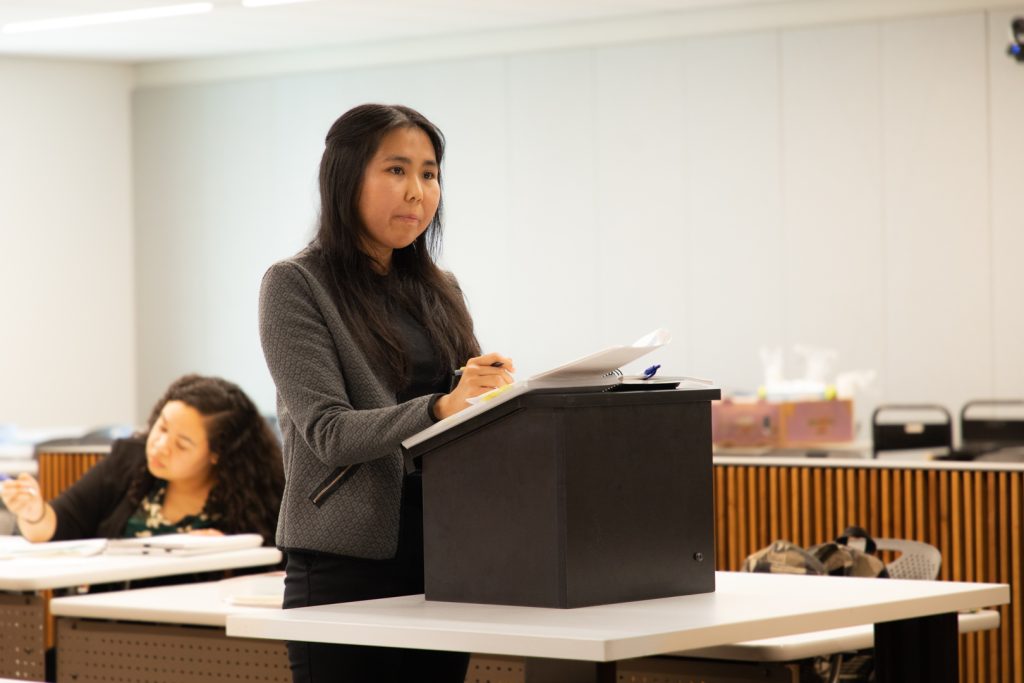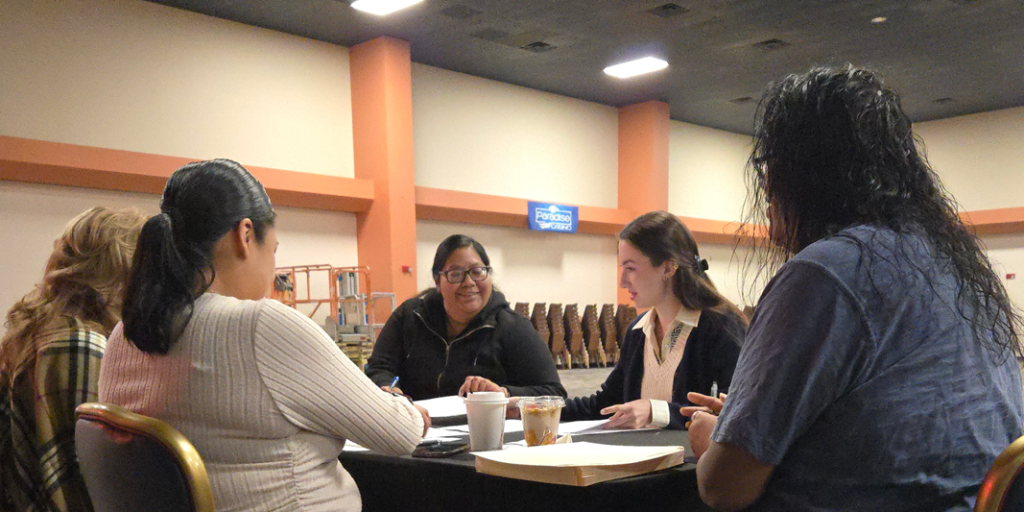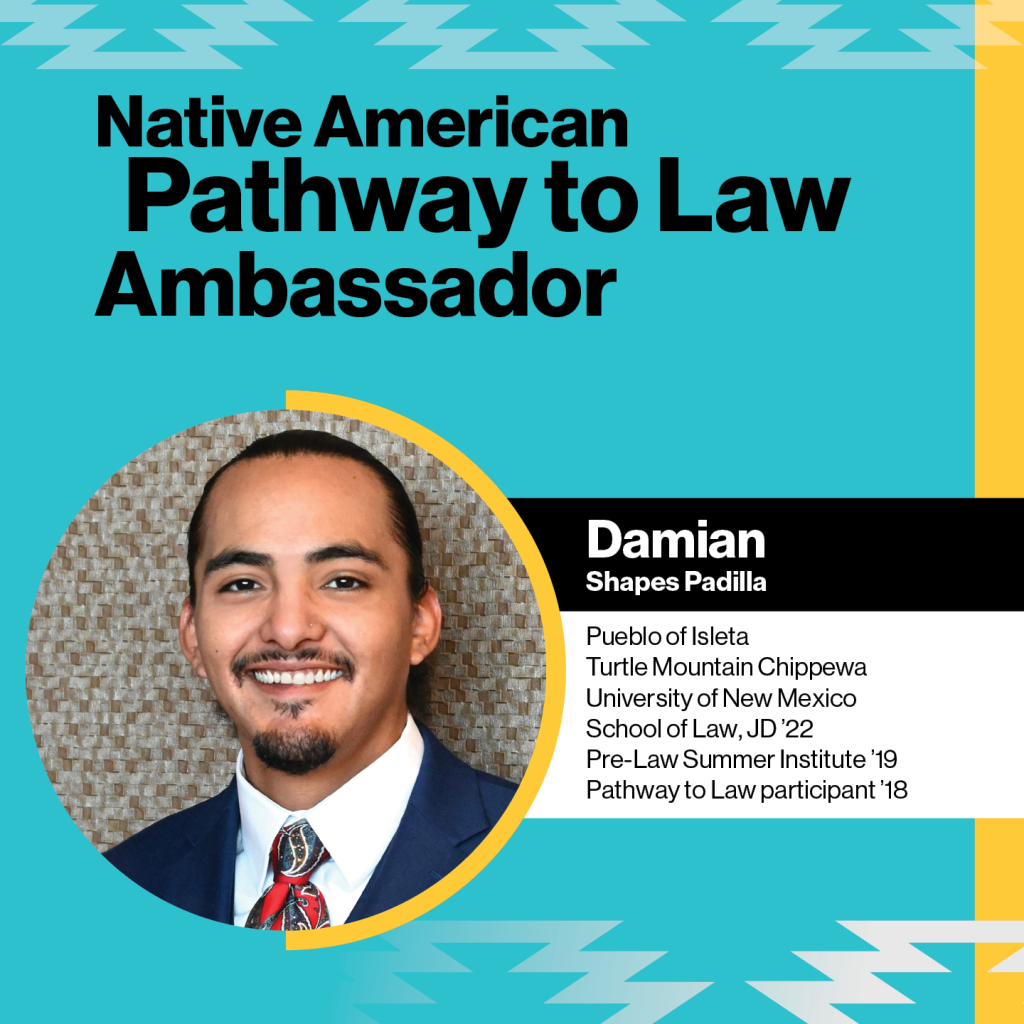The Indian Legal Clinic’s Estate Planning course, taught by Professor Helen Burtis (’07), continued to provide vital legal services to Tribal communities throughout the 2024–2025 academic year. Through four estate planning clinics, law students worked one-on-one with Tribal members to help them articulate their estate planning goals and wishes, draft custom legal documents, and execute finalized Indian wills and powers of attorney that comply with Tribal, state and federal laws.
This year’s clinics served members of the Gila River Indian Community, the Pechanga Band of Indians, the Quechan Indian Tribe, and another Arizona Tribe. Before each clinic, students completed a five-week preparatory course covering statutes and legal frameworks relevant to estate planning in Indian Country. This foundational training allowed them to confidently draft and explain wills and health care powers of attorney tailored to the cultural and legal needs of each Tribal client.
Over fall break, eight law students traveled to Temecula Valley, California, to work with members of the Pechanga Band of Indians. Students Jessica Banks (3L), Gabe Dowell (3L), Shandiin Herrera (3L), Imani Hicks (3L), Matthew McGraw (3L), Cristella Medrano (3L), Sam Phillips (2L) and Ian Roche (3L) assisted 14 clients in preparing estate planning documents, including wills and health care powers of attorney.
In November, five clinic students traveled to the homelands of the Quechan Indian Tribe for two impactful days of service. Students Peyton Liang (3L), Ronnie Strode (2L), Kendra Sutherland (3L), Adare Taylor (3L) and Phillips prepared 10 comprehensive wills and seven health care powers of attorney after listening to clients’ unique stories and understanding their goals. The clinic further strengthened the longstanding relationship between the Indian Legal Clinic and the Quechan Indian Tribe.
Two additional clinics were held in the spring. On March 28-29, student attorneys Jerimy Billy (2L), Emily Krainski (3L), Sarah LeFebre (3L), Kendall Pack (3L) and Phillips assisted members of the Gila River Indian Community Tribal. On April 11-12, students Jessica Banks (3L), Grace Hulin (3L), Samantha Johnson (3L) and Phillips provided estate planning for another local Tribe. Across both clinics, the team drafted 14 wills and 10 health care powers of attorney.
The Estate Planning clinics offer student attorneys a meaningful learning experience that deepens students’ legal skills by practicing delivering critical legal services while appreciating the special concerns of Indian clients. Over the course of each two-day clinic, students meet individually with clients, listen carefully to their wishes and translate those into legal documents that protect their assets and dignity. This hands-on experience not only sharpens students’ legal skills but also strengthens their connection to the Tribal communities they serve.
Sam Phillips, who participated in five estate planning clinics, reflected on the impact of the work: “They have become work that is very important to me, especially helping elders as a way to give back to the communities that continually support us in the Indian Legal Program.”
The Indian Legal Program at ASU Law remains grateful to the Tribal nations who open their doors to host these clinics and make it possible for students to learn by serving. These partnerships are foundational to the program’s mission of preparing future lawyers to work with Tribal communities with knowledge, humility and respect.





